Once taxing bearded individuals, employing cats as museum staff, and having a land area larger than that of a planet… are just a few of the surprising facts about the beautiful land of the Russian Federation.
1. Russia is larger than a planet
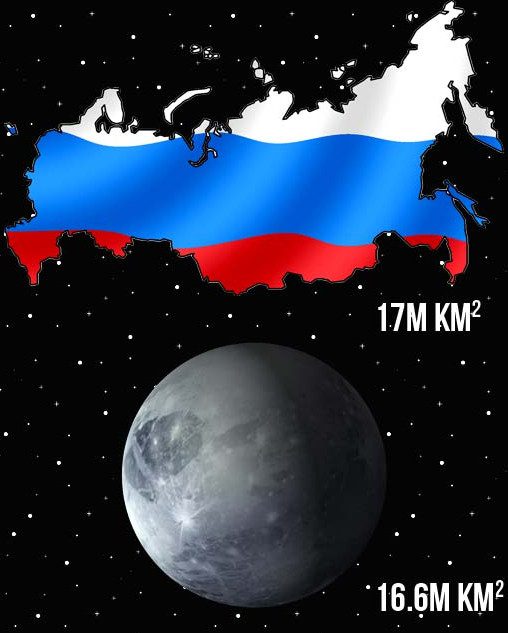
The surface area of Russia is larger than that of Pluto.
Specifically, with a surface area of 17 million km2, Russia is even larger than Pluto (16.6 million km2). However, it is also a country with quite harsh geographical conditions, with 77% of its area covered in cold ice.
2. Beer was once considered a non-alcoholic beverage
On average, each Russian consumes about 18 liters of alcoholic beverages in a year, which is double the dangerous level that one can tolerate. Consequently, about 500,000 people die each year in the Russian Federation due to alcohol-related issues.
Interestingly, Russians did not consider beer an alcoholic beverage until 2013. Perhaps that’s why this “carbonated soft drink” was consumed indiscriminately, with each Russian sporting “killer curves.”
3. Russia is a “matriarchal” country
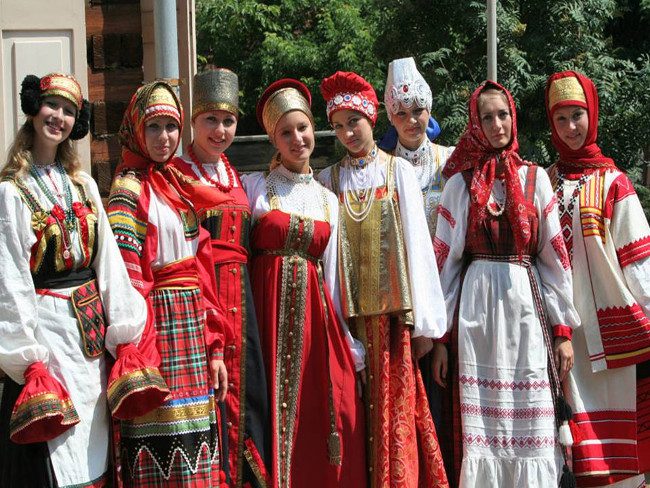
There are more women than men!
That said, don’t assume that women hold power in Russia. The power of the women lies in their numbers. There are 9 million more female citizens in Russia than male citizens.
4. Russians are not very accepting of the LGBT community
On June 30, 2013, Russian President Putin issued a decree banning the discussion/promotion of the LGBT community to children, with violators facing arrest and criminal charges. LGBT remains a significant taboo in this country.
5. Russia holds numerous childbirth records
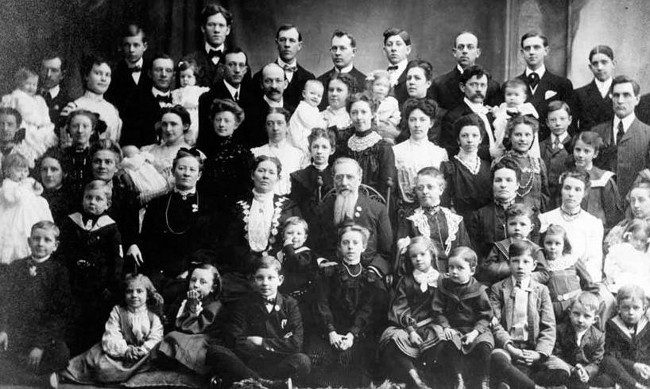
The Vassilyev couple and their “army” of children.
Specifically, in the 18th century, a Russian mother gave birth to 16 pairs of twins, 7 sets of triplets, and 4 sets of quadruplets, totaling 69 children over 40 years with the same man. Her name was Valentina Vassilyev, a farmer in Shuya province, and her husband was Feodor Vassilyev. Surprisingly, after Valentina, her husband “produced” another 18 children with a second wife. In total, he “produced” 87 descendants, of which 82 survived healthily.
6. Russians have a uniquely stubborn personality
In 1908, the Russian Olympic team arrived in London 12 days late and missed the Olympics. The reason given was that Russia had not yet switched to the Gregorian calendar, so they assumed the event date was calculated according to the old calendar.
Even today, about one-third of Russians still believe that the Sun revolves around the Earth. Additionally, many wealthy “naive Russians” enjoy hiring fake ambulances to get around quickly, avoiding waiting at red lights.
7. Russian scientists keep foxes as pets instead of dogs
Since 1959, Russian scientists have begun domesticating Arctic foxes and turning them into house pets due to many dog-like traits. This movement was initiated by Dr. Dmitri Belyaev, and the Institute of Cell and Genetic Research in Novosibirsk continues to adopt these foxes as pets.
8. Having a beard means paying a tax
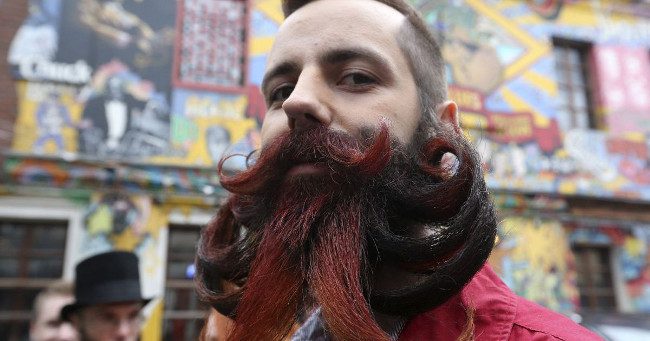
Having a beard means shelling out money!
Under the reign of Peter the Great in the 16th century, a tax known as “beard tax” was imposed. Anyone with a beard during this period had to pay a tax. This idea came to Peter the Great after he visited Europe and noticed that many developed countries had no bearded individuals. So, how to bring the “clean-shaven culture” to this wild land? Tax them!
9. Cats are museum staff
Some museums in Russia have “hired” finicky cats as official staff. Not for reception or decoration, but they have a real job: to eliminate pesky mice that destroy humanity’s artworks day and night.
10. Vodka culture

Vodka is everywhere.
The word “Vodka” originates from a Russian word “Voda“, meaning water. We often associate Russia with vodka, and Russians drink vodka as if it were water. Perhaps for this reason, 25% of the Russian population dies before the age of 55, while the figure in the U.S. is only 1%. Yes, it’s all thanks to vodka.
During times of economic inflation, many schools even decided to pay teachers with vodka.
11. Cleanliness in Russia
If you drive a car covered in dirt across Russia, there’s a high chance you’ll be pulled over by the police, especially if your license plate “is hard to see.” The fine for this urban aesthetic violation is about $16 (equivalent to 320,000 VND).
12. A mysterious Russia
According to geographers, Russia has at least 15 unnamed cities, and no one knows where they are, not even native Russians.
13. Don’t mess with Russian bears
Russia possesses 8,400 nuclear weapons, more than any other country.
14. Russia has 9 time zones
Previously, Russia had 11 time zones, but since 2010, the country decided to reduce the number of time zones to 9 for easier work and communication nationwide. Even so, Russia remains the country with the most time zones in the world.
15. The busiest subway system in the world
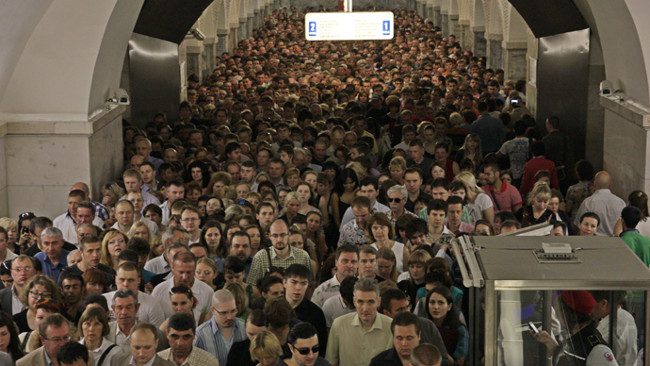
The subway service is extremely crowded in Russia.
Every day, about 9 million people use the subway service in Russia, more than the combined population of London and New York. The subway station that receives the most passengers daily here is Vykhino station in Moscow, with about 176,629 people each day.
16. The least spoken language in the world
Russia has the least spoken language in the world, Ter Sami. Currently, only 2 people on the Kola Peninsula speak this language.
17. Lake Karachay – the deadliest lake in the world
Few know that the beautiful Lake Karachay in Russia is a deadly lake that can kill a person if they stand near it for 5 minutes. The lake has a deep blue color that appears peaceful but harbors many dangers. This is because Lake Karachay (in the southwest of Chelyabinsk, Russia) is located in the area of the Mayak Production Association – one of the largest nuclear facilities with the highest radiation leakage levels.
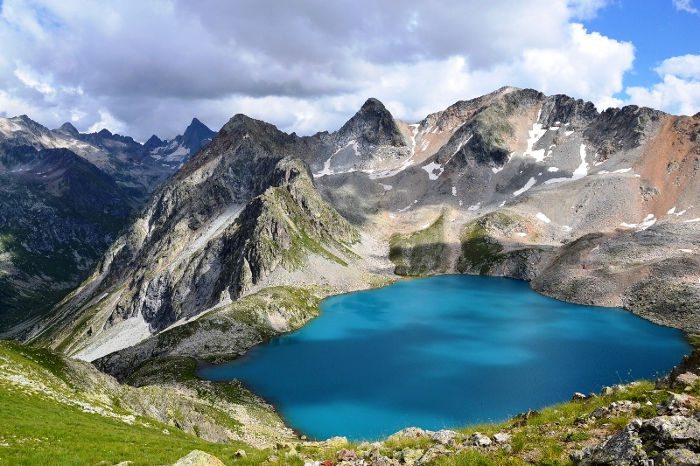
18. Russia has the longest railway in the world
The Trans-Siberian Railway stretches almost across all of Russia. This is the longest single railway in the world, with a total length of 9,289 km, starting from Russia and extending into Asia.
19. Home to the coldest inhabited town on Earth
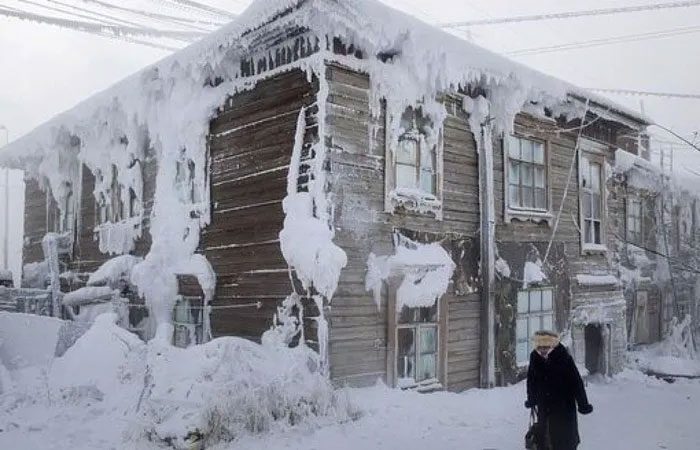
Oymyakon, located in Yakutia, Siberia, is considered one of the coldest inhabited towns on Earth. The coldest recorded temperature in 1938 was -77.8°C. The average temperature in December and January is -50°C.
20. Home to the longest river in Europe
That would be the Volga River, with a length of about 3,690 km (not including its smaller tributaries).
21. The highest mountain in Europe
With an elevation of 5,642 meters, Elbrus is the highest peak in Europe. Mount Elbrus is located in the western Caucasus mountain range in the autonomous republic of Kabardino-Balkaria within the Russian Federation.


















































